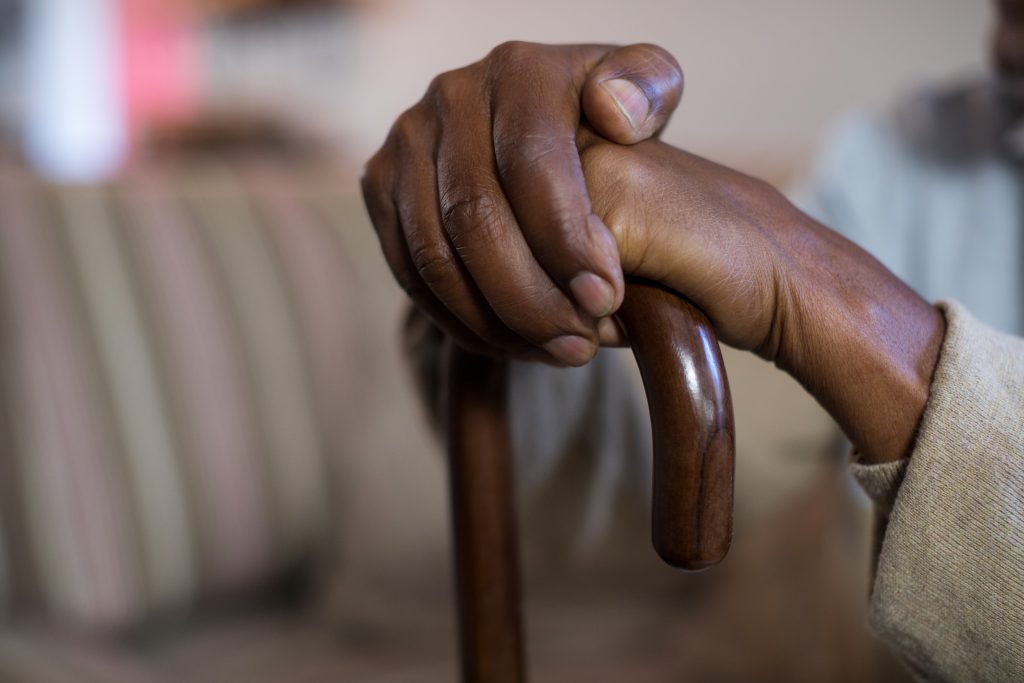Almost half of South Africa's 60 million people receive social grants, ranging from child support to pensions. The grants are intended to provide financial support to people living in poverty.
The largest components of South Africa's social grants system were introduced or expanded to cover the entire population in the 1990s. Since then, the system has evolved into one of the most comprehensive in the Global South.
advertisement
Continue reading below
In addition to direct economic benefits, subsidies have been shown to have a wide range of positive effects. These include improving child nutrition and education and increasing women's labor force participation.
However, the effects of social subsidies on the health of older people have not been adequately investigated. until now.
Through a series of recent studies carried out as part of a large-scale research project in rural South Africa, it has been proven that social grants can help older South Africans protect their cognitive health and live longer. I did. Cognitive health is the ability to think, learn, and remember clearly.
We bring together our expertise in cognitive and population health to study the health impacts of three different cash transfer programs in a sample of 5,059 adults aged 40 and over living in rural Mpumalanga. did.
Thanks to these programs, our results have been consistently strong and positive.
Over the next 20 years, older people will make up an even larger proportion of South Africa's population. Our results provide good news about social intervention programs that countries are already implementing to promote health and well-being among older adults.
How did you conduct your research and what did you learn?
The Agincourt Health Demographic Surveillance System has collected data on more than 120,000 people living in 31 villages in north-eastern South Africa since 1992.
This rural campus of the University of the Witwatersrand was established to track and understand health and wellbeing in rural settings.
The Agincourt project is also a platform for other studies to gather more detailed information about specific community members.
We use data from an experimental cash transfer trial within the large Agincourt research platform that paid monthly cash payments to households from 2011 to 2015, and used them to contrast households with no payments. We compared. Initially, just over 2,500 households enrolled in the trial. The monthly payment of R300 was split equally between the school-aged woman and her carer.
We also used data from Health and Aging in Africa: A Longitudinal Study in South Africa. This is a small Agincourt cohort of 5,059 men and women aged 40 and older, with detailed information on memory function and dementia probability collected every three years from 2014/2015 to 2021/2022. It is.
We tested whether being in a group that received a cash transfer led to improved subsequent cognitive health up to seven years after the end of the study.
People who received cash were found to be better off than those who did not. In 2021/2022, the latest wave of data collection, age-related memory decline slowed and the odds of dementia were lower.
In some groups, an effect on mortality was also observed. For people who were relatively well off at baseline in terms of education and assets, the addition of cash benefits significantly reduced the risk of death.
The second study investigated the effect of public pensions, which are subsidies for the elderly, on men's cognitive health in later life.
advertisement
Continue reading below
From 2008 to 2010, the elderly subsidy expanded the eligibility age for men from 65 to 60 years. This meant that men aged 60 to 64 at the time of the expansion would be eligible for an additional one to five years of 'top-up' pension income before turning 65.
Women were always eligible at age 60 and were therefore not included in this analysis.
We found that men who received the full additional five years of pension entitlement had significantly better cognitive function than would have been expected if their subsidy eligibility had not been expanded.
They also observed a “step-like” pattern in which cognitive function gradually improved with each additional year of pension eligibility.
Our final study investigated the impact of child support subsidies on women's late-life cognitive health.
When the child support subsidy was introduced in 1998, it was only available to children under the age of seven. Since then, a series of policy changes have expanded the age of children eligible for the subsidy, eventually raising it to 18 in 2012. These expansions mean that over time, two women with the same number of children could have received very different amounts of subsidies. Child support subsidy income varies depending on when the children were born.
Consistent with our findings regarding subsidy expansion for older adults, higher access to child support subsidy income was associated with improved subsequent cognitive function among maternal subsidy recipients.
I'm looking forward to
Our results to date clearly demonstrate the benefits of South Africa's social grants program for older people as currently constructed.
They suggest that as South Africa ages in the coming decades, continued investment in these programs will pay off in improving the health and wellbeing of the country's most vulnerable older people. There is.![]()
Molly Rosenberg, associate professor of epidemiology at Indiana University. Chodziwadziwa Whiteson Kabudula, Senior Researcher, Transitional Rural Health and Agincourt Research Unit, University of the Witwatersrand.Kathleen Kahn, Professor, Department of Health and Population, School of Public Health, University of the Witwatersrand; Lindsay Kobayashi, Assistant Professor, Department of Epidemiology, University of Michigan
This article is republished from The Conversation under a Creative Commons license. Read the original article.

